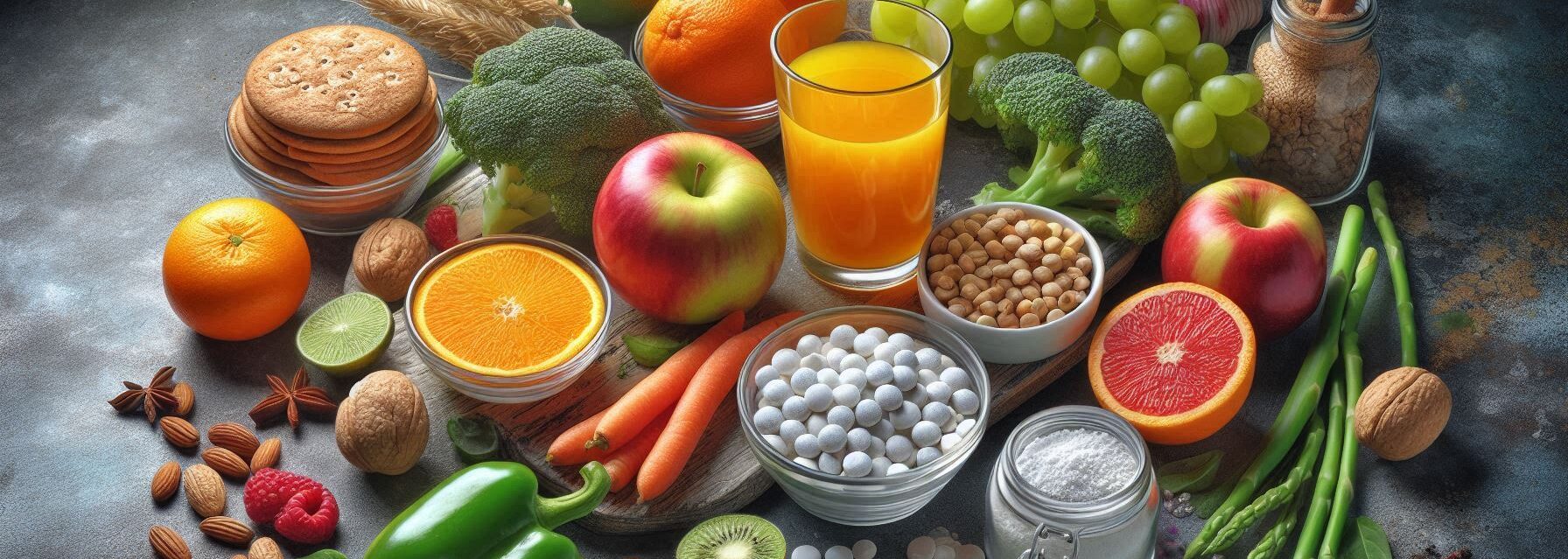Ah, aging! It’s that magical time when you realize that your body is like a fine wine—only instead of getting better with age, it seems to be turning into vinegar.
As we get older, our dietary needs change faster than my ability to find my reading glasses (which are usually on my head).
So how do we adapt our diets to ensure we’re not just surviving but thriving? Let’s dive into this delicious topic!
Top Takeaways and Key Concepts
Prioritize protein intake: Increase lean meats, beans, nuts, or plant proteins to maintain muscle mass.
Boost fiber consumption: Eat more whole grains, fruits, and vegetables to support digestion and heart health.
Stay well-hydrated: Drink at least eight glasses of water daily, using fruit or herbs for flavor.
Limit added sugar: Swap sugary snacks for fruit or yogurt to stabilize blood sugar and manage weight.
Practice mindful eating: Slow down, savor each bite, and prevent overeating by focusing on flavors.
Summary of This Article
The article emphasizes how dietary needs change with age and offers strategies for healthy aging. Key recommendations include increasing protein for muscle maintenance, consuming more fiber for digestive and cardiovascular health, staying adequately hydrated, reducing added sugars, and practicing mindful eating. By focusing on whole foods, making small adjustments, and enjoying meals thoughtfully, older adults can support long-term health, manage weight, and enhance overall well-being while embracing the aging process.
1. The Great Protein Debate

By the way, have you noticed how everyone suddenly becomes obsessed with protein as they age? It’s like one day you’re happily munching on pizza and the next, someone hands you a protein shake and says, “Drink this!”
Honestly, I thought protein was just for bodybuilders and those people who can do more push-ups than I can count.
As we age, our bodies become less efficient at using protein. This means we need to up our intake if we want to maintain muscle mass.
Think of it as a workout for your diet—more protein means fewer saggy bits! So load up on lean meats, beans, nuts, and maybe even some of those trendy plant-based proteins. And let’s face it: who doesn’t love a good bean burrito?
2. Fiber: The Unsung Hero
Speaking of beans… let’s talk about fiber! If there were an award for the most underrated nutrient in the universe, fiber would win by a landslide.
I mean, have you ever met anyone who excitedly talks about their daily fiber intake at parties? “Hey everybody! Guess what? I had 30 grams today!”
But here’s the deal: fiber is crucial as we age because it helps keep our digestive systems running smoother than a well-oiled machine. Plus, it can help lower cholesterol levels and keep blood sugar steady—just think of all the benefits while enjoying your bran muffin!
Interestingly enough, increasing fiber isn’t just about eating more roughage; it's also about making smart choices. Swapping white bread for whole grain or adding more fruits and veggies can make a world of difference without sacrificing taste (or fun).
3. Hydration Nation
Let’s see… when was the last time you drank water? Seriously! Many people don’t realize that our thirst sensation diminishes as we age—so often we forget to hydrate until we're parched like a cactus in July.
Dehydration can lead to all sorts of problems from fatigue to kidney stones (and trust me; nobody wants kidney stones!).
Aim for at least eight glasses of water per day—or whatever amount makes your body feel happy and hydrated. And no, soda does not count—even if it has bubbles!
On the other hand, if plain water feels boring (which sometimes it does), try jazzing things up with slices of fruit or herbs—a little lemon or mint never hurt anybody.
4. The Sugar Conundrum
Now let’s address sugar—the sneaky villain lurking in everything from cereal to salad dressings! When you're young and spry (or at least younger), sugar seems harmless enough; however, as we get older it starts throwing tantrums like an angry toddler when left unchecked.
Too much sugar can lead to weight gain and increased risk for diabetes—not exactly what you want on your health report card! To be fair though; cutting back doesn’t mean saying goodbye forever—it just means being mindful about where that sugar comes from.
Try swapping sugary snacks for healthier options like fruit or yogurt topped with nuts—they're satisfying without sending your blood sugar on a rollercoaster ride!
5. Mindful Eating: Savoring Every Bite
Speaking of snacks… have you ever eaten something mindlessly while binge-watching TV? Before you know it—you’ve devoured half a bag of chips without even realizing they were gone!
Mindful eating is essential as we age because slowing down allows us to enjoy food more fully—and helps prevent overeating.
I once tried this technique during dinner by putting my fork down between bites (I felt very sophisticated).
Surprisingly enough—I discovered flavors I’d never noticed before! Instead of shoveling food into my mouth like I was preparing for hibernation mode; I actually savored every bite.
So next time you're munching away at dinner or snack time—take your time and truly appreciate each flavor explosion happening in your mouth!
Conclusion: Embrace Change
All things considered; adapting your diet as you age doesn't have to be daunting—it can actually be quite liberating! By embracing changes in nutritional needs while focusing on whole foods rather than processed ones—we set ourselves up for better health outcomes long-term.
And remember—aging may come with its challenges—but so does wisdom…and hopefully some really great recipes too!
Suggested External Resources:
Healthy Aging Tips
https://www.healthline.com/nutrition/healthy-aging-tips
Nutrition Guidelines for Older Adults
https://www.eatright.org/health/wellness/healthy-aging/nutrition-guidelines-for-older-adults
The Importance of Hydration
https://www.ncbi.nlm.nih.gov/pmc/articles/PMC6470910/
Frequently Asked Questions
Why do dietary needs change as we age?
As we age, metabolism, muscle mass, and digestion naturally shift. These changes require adjustments in nutrients like protein, fiber, and hydration to maintain health.
How much protein do older adults need?
Older adults often need more protein to support muscle maintenance. Including lean meats, beans, nuts, and plant proteins helps meet daily needs.
Why is fiber important for aging adults?
Fiber supports digestion, heart health, and blood sugar control. Increasing fruits, vegetables, and whole grains helps maintain overall well-being.
How can older adults stay properly hydrated?
Hydration needs increase with age because thirst signals weaken. Drinking water regularly and adding fruit for flavor can improve daily intake.
Why should added sugar be limited with age?
Excess sugar increases the risk of weight gain and diabetes. Choosing natural options like fruit or yogurt helps stabilize energy and blood sugar.
How does mindful eating benefit older adults?
Mindful eating encourages slower, more intentional eating, reducing overeating and enhancing enjoyment of meals.
What simple diet changes support healthy aging?
Boosting protein and fiber, staying hydrated, reducing added sugars, and focusing on whole foods all contribute to better long-term health outcomes.

Kevin Collier is a dedicated health enthusiast and writer for FatFAQ.com, where he shares his expertise on weight loss and maintaining a healthy lifestyle. With a focus on practical tips and evidence-based strategies, Kevin aims to inspire readers to achieve their health goals through informed choices. His engaging articles cover nutrition, exercise, and holistic wellness, providing valuable resources for anyone looking to improve their well-being. Passionate about helping others transform their lives, Kevin advocates for sustainable habits that promote lasting health and vitality.




